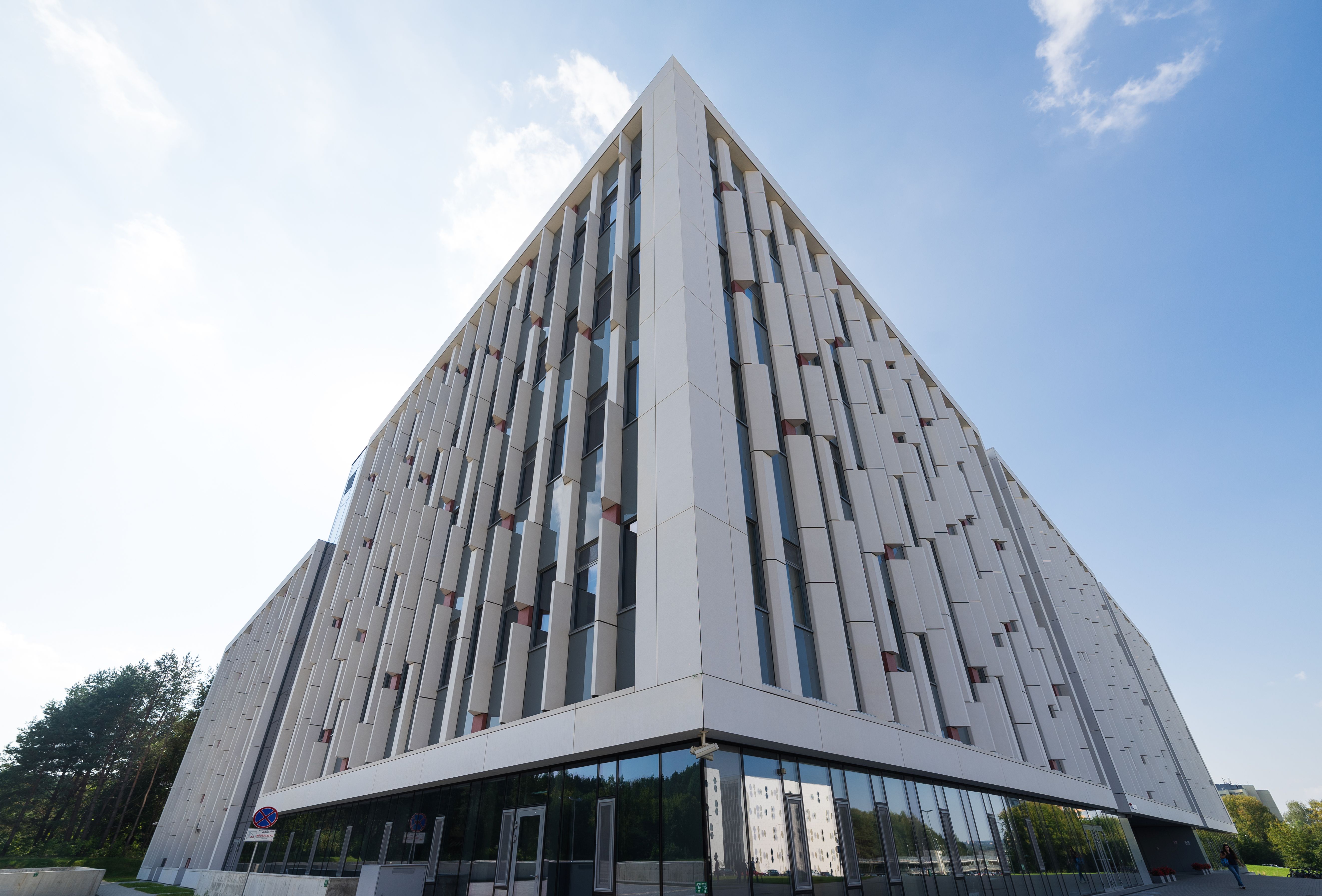The Partnership Institute of the European Molecular Biology Laboratory to Open at VU LSC
 On 8 September, Director General of the elite European Molecular Biology Laboratory (EMBL) Prof Edith Heard signed an agreement with Vilnius University (VU) on the establishment of a Partnership Institute in the Life Sciences Centre (LSC) of VU. This is an extraordinary achievement in the history of Lithuanian science.
On 8 September, Director General of the elite European Molecular Biology Laboratory (EMBL) Prof Edith Heard signed an agreement with Vilnius University (VU) on the establishment of a Partnership Institute in the Life Sciences Centre (LSC) of VU. This is an extraordinary achievement in the history of Lithuanian science.
EMBL unit at VU is a sign of recognition
“The establishment of an elite molecular biology laboratory unit in Lithuania, at the VU Life Sciences Centre, is extremely significant not only for our university. This shows the international acknowledgement of the entire Lithuanian life sciences sector and an opportunity for us to prove ourselves again in this field. This partnership opens even more opportunities for Lithuania to implement competitive research and innovations on the international arena,” VU Rector Prof Rimvydas Petrauskas says.
Prof Gintaras Valinčius, Head of the LSC of VU, is delighted that Lithuania is represented in this research organisation by the Centre. “This demonstrates great international confidence in the activities of the LSC and the evaluation of the achievements of its researchers at the highest level,” Prof G. Valinčius points out.
Development of gene editing research
EMBL is the world’s leading laboratory centre for life sciences with five branches in the UK, Germany, Spain, France and Italy.
The new institute without analogues in Lithuania will employ six high-level groups of international researchers, developing and strengthening gene editing technology. One of the creators of this technology is a renowned Lithuanian scientist, VU LSC Professor Virginijus Šikšnys.
The centres of the EMBL are equipped with the most modern life science research equipment and infrastructure needed for internationally competitive research and innovation. The main centre of EMBL in Heidelberg has light and electron microscopes, which allow implementing technologies that do not have analogues in Lithuania. EMBL's European Bioinformatics Institute in Hinxton (UK) has pooled unique bioinformatics resources, and the Monterotondo EMBL Centre specialises in the development of mouse models used in biomedical research. This centre includes infrastructure for gene modification, transgenic manipulation and histological testing of tissues and cells.
Membership of the EMBL brings great benefits to Lithuanian scientists. Lithuania has been granted access to all the EMBL services and programmes, and Lithuania has the right to vote in the decision-making process of the organisation regarding its activities. Direct contacts with the representatives of the EMBL allow submitting international applications for research funding.
Opportunities for students
Prof Valinčius, who will be responsible for the development of a new unit of LSC, says that the Institute of Partnership of the EMBL has very ambitious goals. “The EMBL Partnership Institute will initiate and develop new directions and technologies of gene editing and applications, promote the application of gene editing technologies in our centre as well as in other Lithuanian research and study institutions. The new unit will have to perform another task that is also very important – it will promote cooperation between the LSC and other Lithuanian research and study institutions with the EMBL and other EMBL partnership institutes,” the head of the LSC says.
The needs of students will also be taken into consideration in the work of the EMBL Partnership Institute. It is planned to strengthen the study potential of the LSC by involving students in the research carried out at the EMBL Partnership Institute. Students and researchers will be able to participate in international programmes and events of the EMBL. Good practices in the organization of EMBL research and academic activities will be transferred and implemented.
“I am convinced that Lithuania’s investments in life sciences will not only remarkably contribute to the well-being of all citizens of our country and will promote the overall development of our country’s life sciences sector, but will also allow a small country like Lithuania to further develop intellectual capital, which is increasingly valued in the world,” Prof G. Valinčius alleges.
In 2015, the Government of the Republic of Lithuania and the EMBL signed an agreement of intent on the future membership of our country in the leading international molecular biology research laboratory. In 2019, our country officially joined this elite molecular biology club.
Currently 27 countries are the members of the EMBL. They have access to all EMBL services and programmes, and the member states have a voice in decision-making on the organisation’s activities.